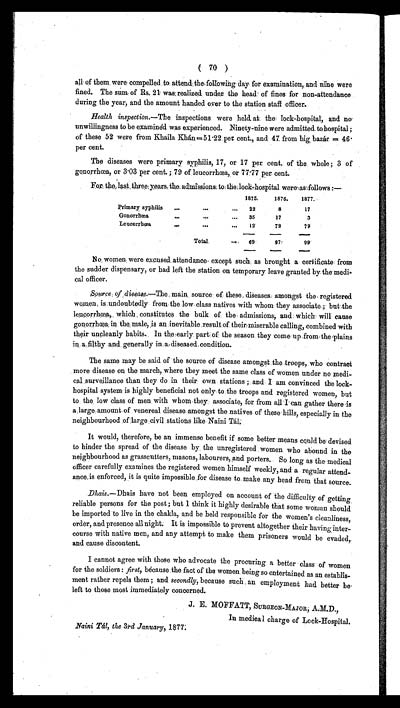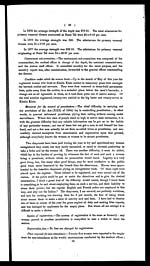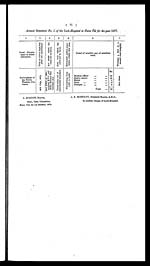Medicine - Institutions > Lock hospitals > Annual report on the working of the lock hospitals in the North-Western Provinces and Oudh > Fourth annual report on the working of the lock-hospitals in the North-Western Provinces and Oudh for the year 1877
(78) Page 70
Download files
Individual page:
Thumbnail gallery: Grid view | List view

( 70 )
all of them, were compelled to attend the following day for examination, and nine were
fined. The sum of Rs. 21 was realized under the head of fines for non-attendance
during the year, and the amount handed over to the station staff officer.
Health inspection.—The inspections were held at the lock-hospital, and no
unwillingness to be examined was experienced. Ninety-nine were admitted to hospital;
of these 52 were from Khaila Khán=51.22 per cent., and 47 from big bazár = 46.
per cent.
The diseases were primary syphilis, 17, or 17 per cent. of the whole; 3 of
gonorrhœa, or 3.03 per cent. ; 79 of leucorrhœa, or 77.77 per cent.
For the last three years the admissions to the lock-hospital were as follows:—
| 1875. | 1876. | 1877. | |
| Primary syphilis | 22 | 8 | 17 |
| Gonorrhœa | 35 | 17 | 3 |
| Leucorrhœa | 12 | 72 | 79 |
| Total | 69 | 97 | 99 |
No women were excused attendance except such as brought a certificate from
the sudder dispensary, or had left the station on temporary leave granted by the medi-
cal officer.
Source of disease.—The main source of these diseases amongst the registered
women is undoubtedly from the low class natives with whom they associate; but the
leucorrhœa which constitutes the bulk of the admissions, and which will cause
gonorrhœa in the male, is an inevitable result of their miserable calling, combined with
their uncleanly habits. In the early part of the season they come up from the plains
in a filthy and generally a diseased condition.
The same may be said of the source of disease amongst the troops, who contract
more disease on the march, where they meet the same class of women under no medi-
cal surveillance than they do in their own stations; and I am convinced the lock-
hospital system is highly beneficial not only to the troops and registered women, but
to the low class of men with whom they associate, for from all I can gather there is
a large amount of venereal disease amongst the natives of these hills, especially in the
neighbourhood of large civil stations like Naini Tál.
It would, therefore, be an immense benefit if some better means could be devised
to hinder the spread of the disease by the unregistered women who abound in the
neighbourhood as grasscutters, masons, labourers, and porters. So long as the medical
officer carefully examines the registered women himself weekly, and a regular attend-
ance is enforced, it is quite impossible for disease to make any head from that source.
Dhais.—Dhais have not been employed on account of the difficulty of getting
reliable persons for the post; but I think it highly desirable that some woman should
be imported to live in the chakla, and be held responsible for the women's cleanliness,
order, and presence all night. It is impossible to prevent altogether their having inter-
course with native men, and any attempt to make them prisoners would be evaded,
and cause discontent.
I cannot agree with those who advocate the procuring a better class of women
for the soldiers: first, because the fact of the women being so entertained as an establis-
ment rather repels them; and secondly, because such an employment had better be
left to those most immediately concerned.
J. E. MOFFATT, SURGEON-MAJOR, A.M.D.,
In medical charge of Lock-Hospital.
Naini Tál, the 3rd January, 1877.
Set display mode to: Large image | Zoom image | Transcription
Images and transcriptions on this page, including medium image downloads, may be used under the Creative Commons Attribution 4.0 International Licence unless otherwise stated. ![]()
| Permanent URL | https://digital.nls.uk/75111065 |
|---|




